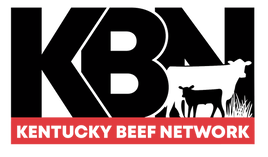Environment
Environment
Environmental Concerns with Grazing
With the many challenges of managing an agriculture operation, environmental concerns often fall low on the priority list. However, incorporating a few key practices can help ensure animal health, improve soil resources, and protect water quality.
Dealing with Wet Pasture Conditions
Muddy, wet pastures are a common scene in Kentucky. In order to keep soil and forage damage to a minimum, it is important to take the proper actions to protect them during these wet periods. Livestock traffic on wet pastures can cause soil compaction and can damage the roots and crowns of plants.
Minimize and Reduce Soil Compaction
Soil compaction is a common problem that many producers face but that is often overlooked. Significant soil compaction can also reduce forage yields and slow forage establishment, which, in the long run, costs money. Management practices can be used to reduce and correct this problem while improving soil conditions.
How to Limit Damage to High-Traffic Areas
High-traffic area pads are a management option to reduce soil disturbances on any farm that is home to livestock. Heavy use pads are made using geotextile fabric under a 4 to 6 inch base layer of No. 3 or 4 gravel, topped by 2 to 3 inches of dense grade.


